Join or Sign In
Sign in to customize your TV listings
By joining TV Guide, you agree to our Terms of Use and acknowledge the data practices in our Privacy Policy.
Star Trek: Discovery Midseason Check-In: What's Working, What's Not?
We're here for the emotional component of the series
Star Trek: Discovery took a rather complicated, winding path on its way to air. Well-publicized behind-the-scenes drama during development, specifically pushed premiere dates and the eventual departure of Bryan Fuller as showrunner, worried fans and non-fans alike. Questions of whether or not the the new series would be watchable, let alone be enjoyable abounded. The two-part series premiere in September was a rather pleasant surprise, but it remained to be seen how the series would grow and evolve as it embarked on its real mission.
Now that the sci-fi series has reached its fall finale -- new episodes return in January -- we're looking back at what worked and what didn't work over the past nine episodes.
What's working: The move to serialization
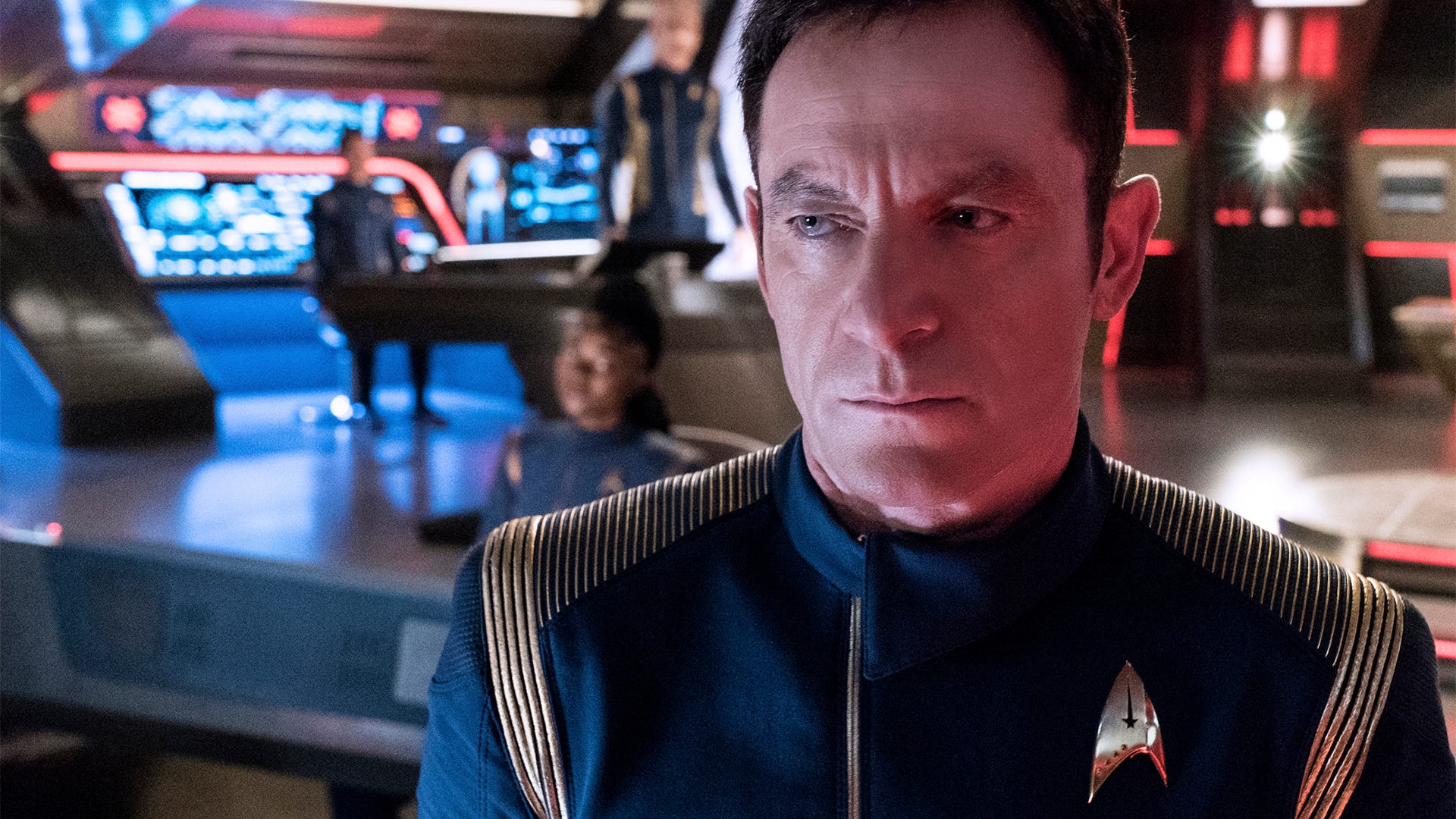
Jason Isaacs, Star Trek: Discovery
Michael Gibson/CBSAlthough previous Star Trek iterations relied heavily on standalone episodes, Discovery opted for more serialized storytelling, which has become increasingly common over time. The decision to follow a single major narrative thread may prevent some viewers from tuning in later on, but the benefits outweigh the disadvantages, especially in 2017, when previous episodes are available to stream at any time.
Star Trek: Discovery: Is Lt. Ash Tyler Who He Says He Is?
The serialized format thus far has allowed viewers to get to know Discovery's characters within the context of the Klingon war -- who these people were prior to the Battle of the Binary Stars and who they are now is key to series. Watching the show build toward the eventual confrontation with Kol (Kenneth Mitchell) in the fall finale deepened our understanding of the show's larger world, while also revealing intimate knowledge about characters and their motivations.
Of course, none of this is to say the series can't still explore episodic storytelling and make it fun and interesting. Hell, we'll gladly take on a healthy share of them, as long as they're well written, intriguing and don't grind the momentum of the overarching plot to a halt. But so far, Discovery is flourishing under serialized storytelling.
What's not working: Klingon dialogue
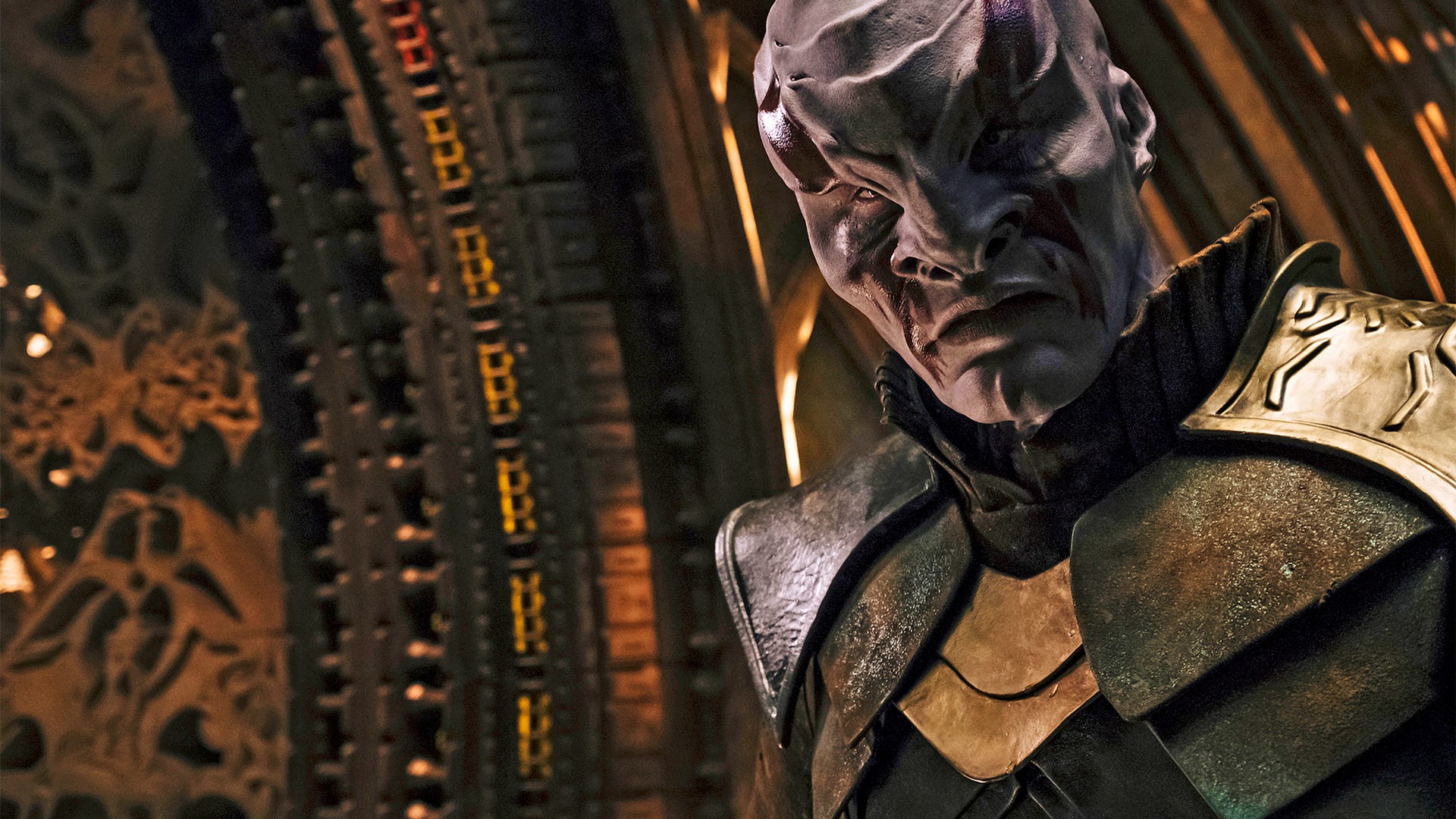
Kenneth Mitchell, Star Trek: Discovery
Jan Thijs/CBSBefore Discovery premiered, the buzz surrounding the Klingons was about their new look (decidedly more alien and in head-to-toe armor), but what we really need to talk about now is how the Klingons speak. Executive producer Alex Kurtzman went to great lengths to have the Klingons speak Klingon, but it's one of those ideas that sounds good but has yet to pan out. The Klingon scenes in which they speak full Klingon are painful to get through; a 30-second scene feels like five minutes. L'Rell (Mary Chieffo) did unseemly things to Ash Tyler (Shazad Latif), but if you told us listening to Klingon being spoken at a glacial pace was a form of Klingon torture, we'd believe you. The show has done a good job of building momentum, but these scenes just grind things to a stop and take you out of the episode.
Here's When Star Trek: Discovery Will Return
The biggest issue with the Klingons isn't necessarily their native language, but that there is nothing fluid or natural about the way the actors deliver the dialogue, which, to be clear, we're sure is difficult to learn. The actors are probably finding it difficult to enunciate under 10 pounds of prosthetics. But the delivery is stilted with no inflection and sounds like it takes so much effort to speak, which isn't how native speakers of any language operate. The subtitles, unfortunately, don't help because viewers read faster than they are able to complete four words. As our Friend Chandler would say, "Spit it out, David!" With all these factors combined, the Klingon scenes are mostly a time-suck rather than an immersive peek into an alien culture.
But with Kol and the Ship of the Dead now, uh, dead, the show can start anew with whatever new Klingons the Discovery crew comes across in whatever new universe they're in. They can phase out the Klingon use. Or speak Klingon in small doses instead of in long, dramatic speeches. Or pull a Hunt for Red October-esque transition. Or hell, speak in any other language as long as there's a clear command of it. The most engaging Klingon moments have been when they're speaking in English, with intonation, emotion, purpose and authority.
What's working: The romance
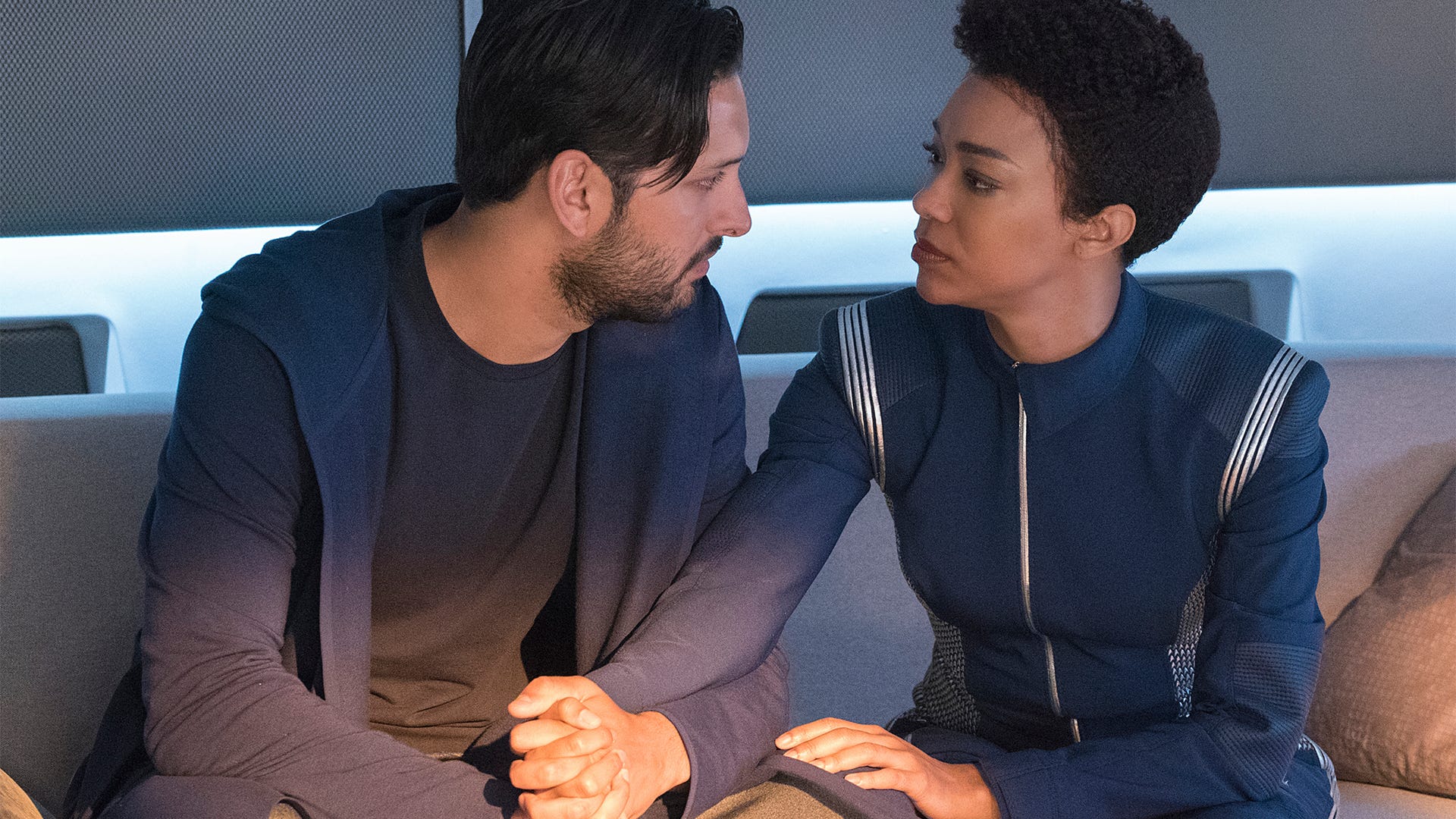
Shazad Latif and Sonequa Martin-Green, Star Trek: Discovery
Michael Gibson/CBSThis is tied into the aforementioned serialization of Discovery, but the emotionally compelling relationship that is already blossoming between Burnham (Sonequa Martin-Green) and Tyler adds heft and weight to the series without taking away from the action or the show's central discussions of morality. While their relationship progressed rather quickly once Tyler joined the Discovery, it never stretched the limits of the imagination. Tyler opened Burnham up to a new side of herself -- the side that's never experienced love -- and for someone who struggles with their emotions, that's important. Plus, the simple fact that fans are now worried about what might happen to them if Tyler actually is revealed to be the Klingon Voq means the series is doing something right.
On the other end of the spectrum are Stamets (Anthony Rapp) and Culber (Wilson Cruz), who entered the series in a stable, loving relationship. While they didn't have the opportunity to share a lot of screentime over nine episodes, they made the few minutes they did share worth it, so that when Stamets was forced to jump the ship more than 130 times in a row, or when his final jump inevitably plunged the ship into the unknown, viewers certainly felt the pain etched on both of their faces. If there's one complaint we have about their relationship, it's that we didn't get to see enough of it.
What's not working: Narrative convenience
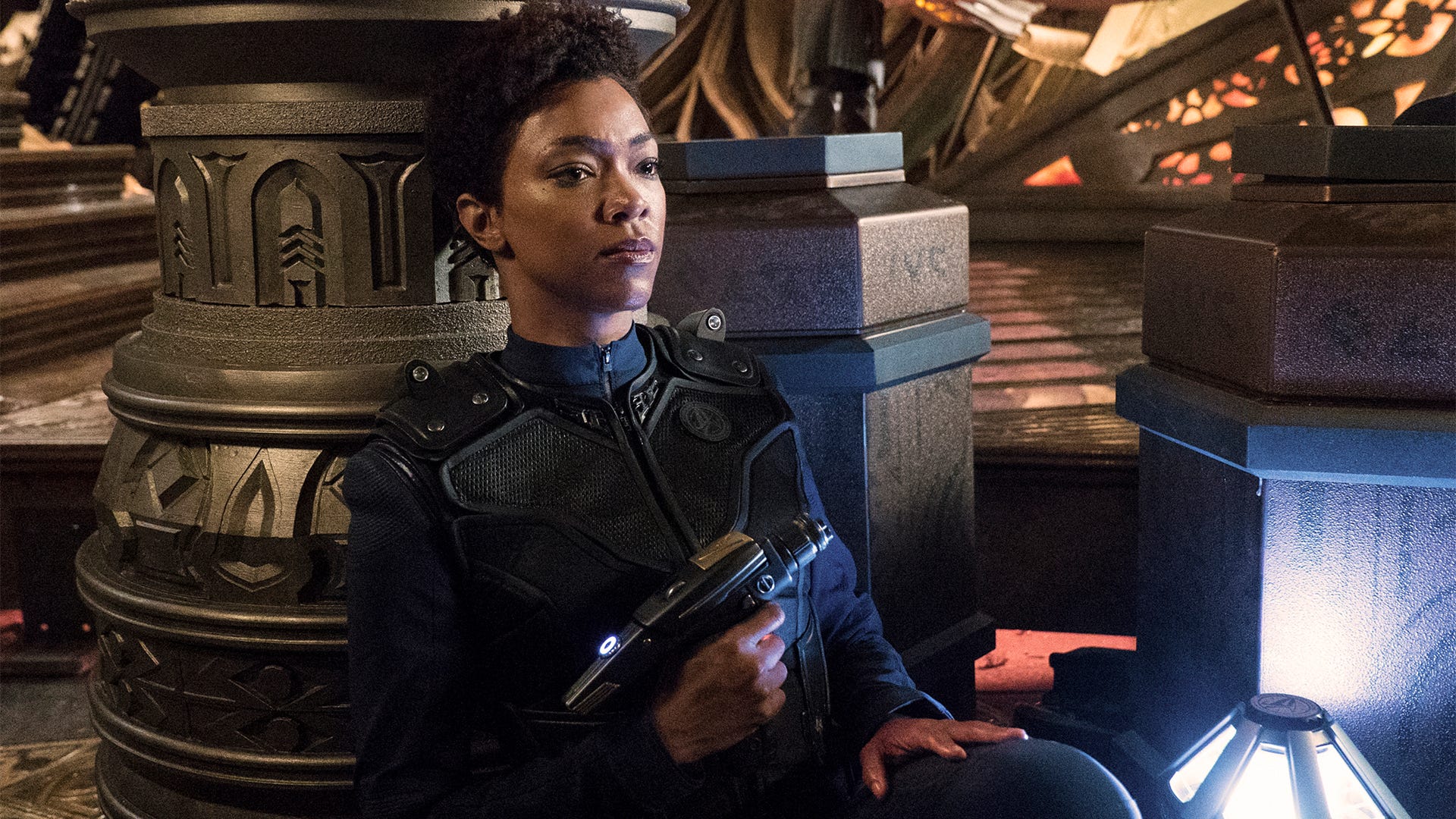
Sonequa Martin-Green, Star Trek: Discovery
Michael Gibson/CBSDiscovery's fantastic action set pieces and standout performances make you overlook one of its major weaknesses: dei ex machina. Oftentimes things just happen because there's an endpoint the show wants to get to and it's going to take the path of least resistance to get there. Everything makes sense in the moment -- and it's compelling to watch -- but when you stop to think about it, there are some plotholes.
For example, the show had to get Tyler onto the Klingon ship in the finale because it wanted that PTSD paralysis from him to kick-start reveal of his backstory with L'Rell. Instead of finding a more logical way for him to get on board the ship, the show has Lorca (Jason Isaacs) initially tap Tyler -- you know, the guy who allegedly has been tortured by Klingons -- for the sensor-planting mission instead of Burnham. It's like Lorca wanted to trigger his PTSD! Considering we've seen that Starfleet does have strict mental health and competency rules, it seems especially a suspicious that a recent POW would be promoted to Head of Security.
The plot contrivances are more comical after Burnham and Tyler beam onto the ship. The whole de-cloaking sequence was only able to occur because the Klingon ship conveniently did not move after they cloaked it. Which again, why bother cloaking, if the enemy already knows where you are?
And there are the obviously telegraphed moves that pull viewers out of the flow of narratives: They lingered on Admiral Cornwell's limp body so much that you had to suspect she was still alive. There was no reason for Stamets to do the final spore jump, but you knew as soon as he agreed to it and announced his retirement, something was going to go wrong. And if you didn't, the show made sure to throw in one last clichéd red flag: Stamets made post-retirement opera-watching plans with Culber.
Fans trust Star Trek to be smart and on the edge of the final frontier -- even if that's a laptop screen -- so the show would be wise to assume the same of fans as it moves into Chapter Two.
What's working: Rent jokes
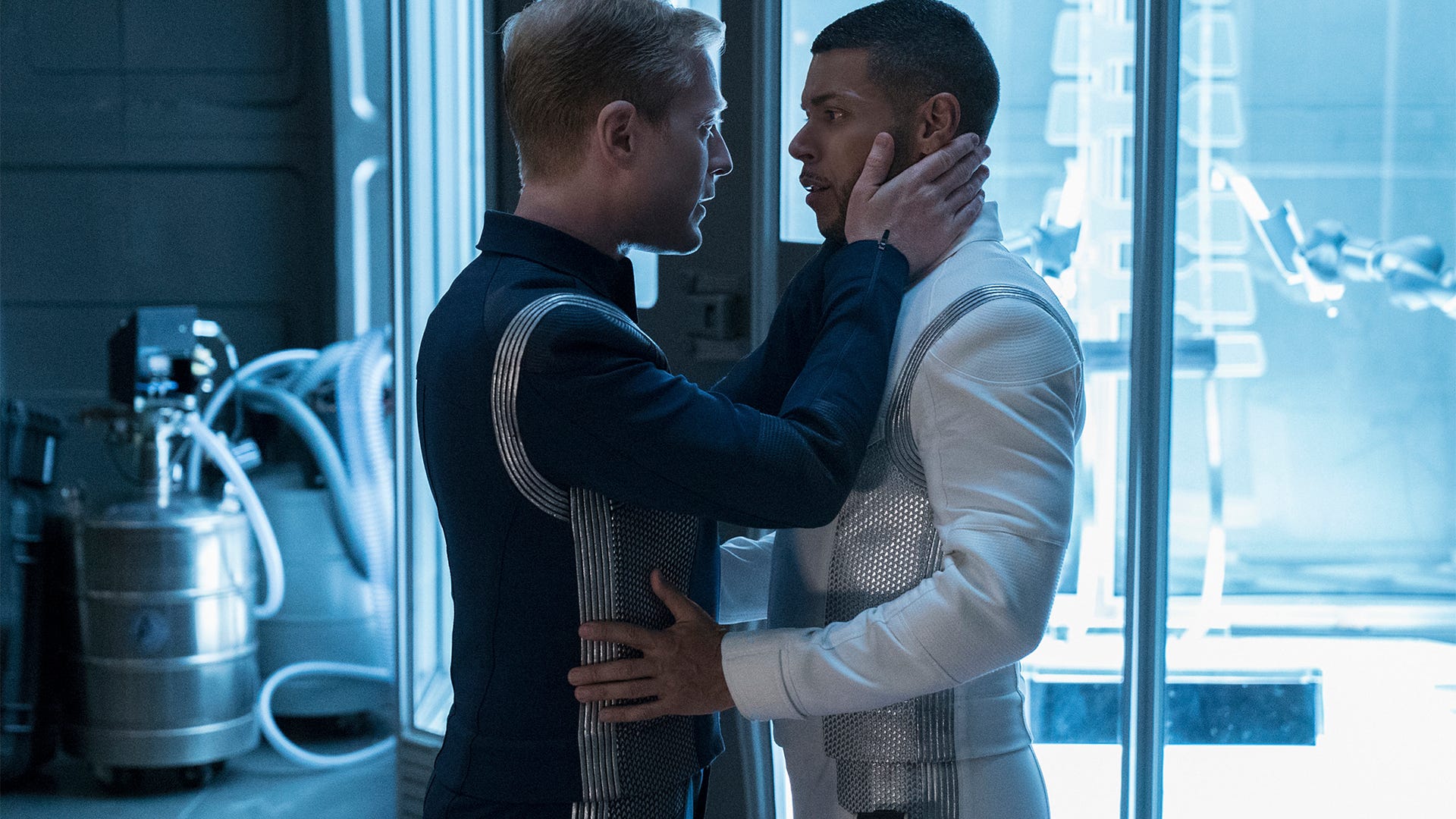
Anthony Rapp and Wilson Cruz, Star Trek: Discovery
Michael Gibson/CBSLook, there probably isn't a lot of overlap between Star Trek and Rent, but when your series stars Anthony Rapp and Wilson Cruz, you have to make a La bohème joke in the fall finale. And we have to love it.
Catch the second half of Star Trek: Discovery's first season starting Sunday, Jan. 7 at 8:30/7:30c exclusively on CBS All Access.
(Full disclosure: TV Guide is owned by CBS.)

